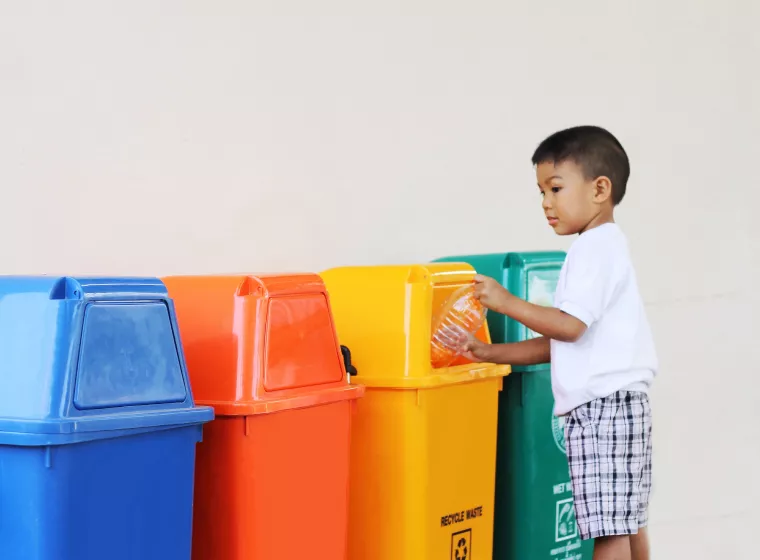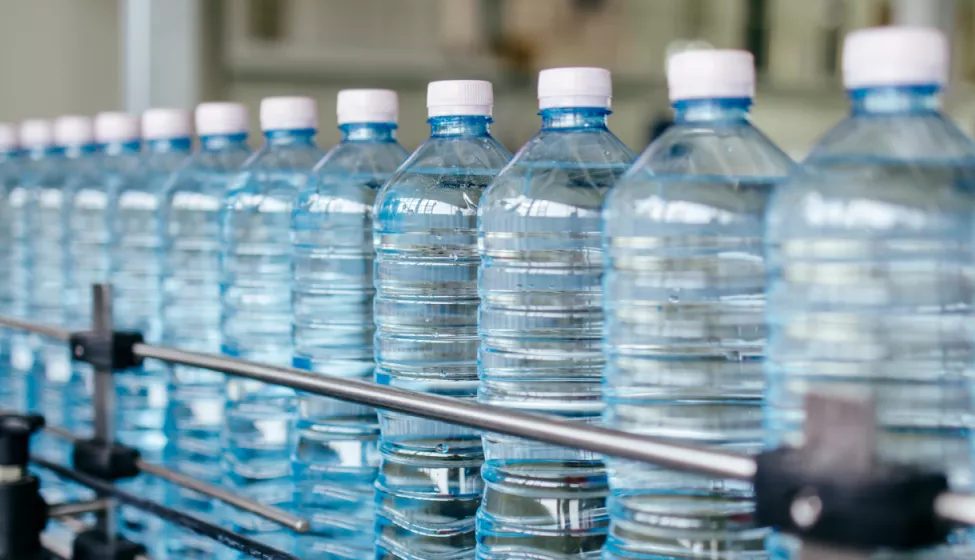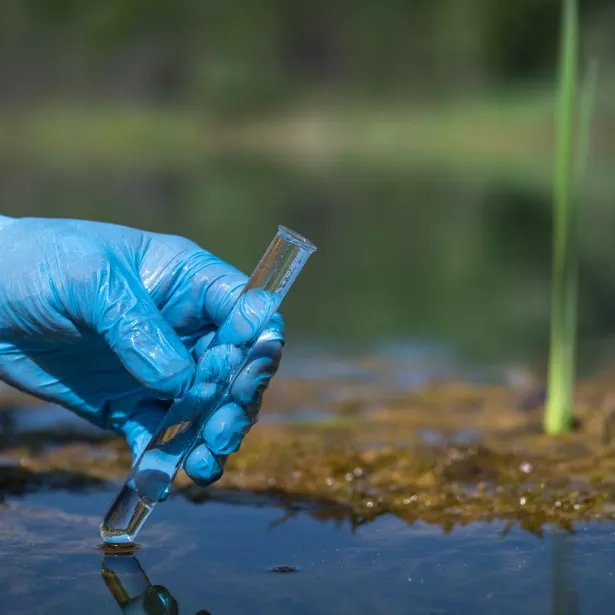April 28, 2023
The Protecting Communities from Plastic Act may not become federal law, but its provisions could be recycled at the state and local levels
Plastics producers will want to stay up to date with state lawmakers, who are increasingly recycling key provisions of federal bills into regional laws that reshape plastics production both at the local level and through the national supply chain.
In 2022, the U.S. Congress did not pass the Protecting Communities from Plastic Act, following similar responses to its nearly identical predecessor bills in 2020 and 2021. These landmark bills would have mandated permit moratoriums, nationwide source reduction targets, and environmental justice assessments.
Notably, in the same three-year timeframe, California, Colorado, Maine, and Oregon enacted sweeping laws that set vast single-use reduction targets and require producers of single-use packaging as well as some other single-use products to create and finance statewide recycling programs. The latter provision is an emerging legal framework called extended producer responsibility (EPR), first detailed in the aforementioned failed 2020 and 2021 versions of the federal Break Free From Plastic Pollution Act.
Extended Producer Responsibility arrives in the US via state and local laws
In the absence of an overarching federal directive, regulating plastics at the industry level remains top of mind for many state and municipal lawmakers. The U.S. once exported 78% of its plastic waste to China, until China banned most imports of scrap plastic in 2018, leaving U.S. municipalities to find some other way to deal with this challenge.
The Plastic Pollution Prevention and Packaging Producer Responsibility Act, enacted in California in 2022, will have profound supply chain ripple effects among plastic and petrochemical manufacturers.
A growing number of states are looking for answers through enacting or proposing EPR regulations that incentivize producers to either make products (e.g., food service ware) and packaging more readily recyclable or else cover the actual costs of recycling their products. In doing so, they would be following a global policy example set by other countries similarly affected by the Chinese scrap imports ban. In 2021, most international shipments of plastic scrap were banned under the Basel Convention for the Control of Transboundary Movements of Hazardous Wastes. Since the 2010s, EPR programs have been introduced in Canada's British Columbia, Belgium, Spain, South Korea, and the Netherlands.
Stateside, some 40 bills for EPR-related plastics legislation were considered by lawmakers in 19 states in 2022 alone. The wave of state laws enacted and state bills under consideration outlines the growing trend and suggests the staying power of EPR in the U.S. While most bills do not become law, stakeholders can benefit from examining the proposed bills' alternative roadmaps for reducing plastics production and regulating plastics facilities.
States leverage market size with supply chain impacts
The Plastic Pollution Prevention and Packaging Producer Responsibility Act, enacted in California in 2022, will have profound supply chain ripple effects among plastic and petrochemical manufacturers. The Golden State's EPR law and recycling legislation mandates that plastic producers pay into an EPR program and requires that all forms of single-use packaging — including paper and metals — be made recyclable or compostable by 2032, with reduction targets phased in over the decade.
The act, SB 54, could end up having a similar effect as California's Safe Drinking Water and Toxic Enforcement Act of 1986, known as Prop 65, whose requirement of "clear and reasonable warnings" on products sold in the state imposed warning labels on an entire national supply chain.
States eye environmental justice reviews and permitting processes for new facilities
So far, none of these state laws or bills go as far as the 2022 federal Protecting Communities from Plastic Act. However, several provisions of that bill warrant plastics and petrochemical manufacturers' attention, as the proposed legislation would authorize new regulatory powers for the Environmental Protection Agency and amend the Clean Air Act and Clean Water Act while establishing environmental justice reviews for fenceline communities.
Among the changes outlined in the 2022 bill are:
- Direct EPA to list federal targets for plastic source reduction and reuse for single-use plastic packaging and food service ware in the country by the end of 2027.
- Set a minimum 25% source reduction target and establish a reuse and refill target of at least 30% by 2032, with exclusions for personal protective equipment, medical equipment, and long-term plastic storage.
- Name styrene and vinyl chloride as "high-priority substances" that could be relisted in the Toxic Substances Control Act within two years of the law's passage.
- Establish environmental justice assessments for plastic production and chemical recycling facilities seeking permits. This would require facilities to release detailed monitoring data on emissions and fenceline community impacts as well as hold meetings to gather input from fenceline communities.
- Pause new permitting for facilities covered under the Clean Air Act and Clean Water Act.
In April 2023, EPA announced a proposal to update several Clean Air Act regulations that apply to the polymer and resin industry. These new regulations would require plants to conduct fenceline air quality monitoring if the plants use, produce, or emit any of six air contaminants identified in the proposal (EtO, chloroprene, benzene, 1,3-butadiene, ethylene dichloride, and vinyl chloride). Air monitoring is to be compared to an "action level" and operations that exceed this threshold will be required to take measures to reduce these emissions.
In the absence of federal regulations, a patchwork of state regulations may require businesses with any contact with plastic, especially plastic packaging, to comply with a panoply of evolving federal, state, and local regulations.
In February 2023, 48 members of Congress signed a letter to Michael Regan, administrator of EPA, urging the agency to initiate nationwide plastic reduction targets, claiming that "many of the provisions of the 2022 Protecting Communities from Plastic Act can be implemented by EPA now, without further Congressional action." New powers for permitting and conducting environmental justice reviews are also being adapted at the state level.
In June 2022, the New Jersey Department of Environmental Protection (DEP) announced new rules to implement the state's environmental justice laws for facilities located in a census-defined "overburdened community." To apply for DEP approval for new, renewal, or expansion permits, manufacturers would be required by statute to collaborate with the state agency on producing an environmental justice-specific analysis for a facility located in a fenceline community.
And adjacent to New Jersey, the governor of New York signed a 2022 bill ensuring environmental impact assessments are conducted regarding "whether the siting of a facility will cause or increase a disproportionate burden on disadvantaged communities."
Potential patchwork of regulations
While neither the New Jersey nor the New York law is specific to plastics production alone, both enacted bills draw from the provisions of the federal plastics bill while adding to the wave of state laws regulating plastics production and the siting of new plastics and petrochemical facilities. In the absence of federal regulations, a patchwork of state regulations may require businesses with any contact with plastic, especially plastic packaging, to comply with a panoply of evolving federal, state, and local regulations each requiring compliance and accommodation, potentially with significant financial investment.
What Can We Help You Solve?
Exponent's multidisciplinary consulting staff closely monitors the regulatory landscape for plastic products and packaging. Our integrated team of polymer scientists, materials chemists, chemical engineers, health scientists, ecologists, and toxicologists provides broad-based guidance in plastic formulation and manufacturing, product lifecycle analysis, third-party compliance confirmation, and end-of-life impact assessment as well as regulatory, performance, consumer preference, and cost constraint consulting for products.

Product Stewardship
Overcome business and regulatory challenges at every stage, from research and design to disposal and recycling.

Plastics in the Environment
Develop proactive plans to mitigate the environmental impact of polymer and plastic waste.

Consumer Products
Find Ph.D. science and engineering expertise that helps your products perform better, last longer, and operate more safely.




